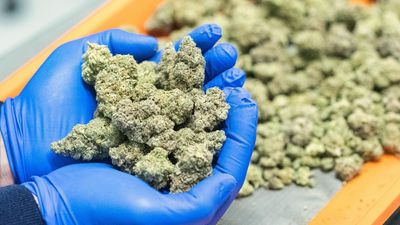Moroccan Government Issues First Permits For Legal Cannabis Production
This marks the first time the Arab country is issuing these permits.
The Moroccan government recently gave 10 farmers permission to grow cannabis legally. This marks the first time the country will issue permits following the legalization of cannabis production last year.
According to the Institute of Security Studies, Morocco is part of a growing group of African countries who would like to position itself as a booming international legal market for cannabis. This new legal development will allow farmers in the northern mountain regions of Taounat, Al Houceima, and Chefchaouen to grow cannabis that will meet the legal market's demand. Before now, cannabis had been widely cultivated in Morocco illegally; however, the law passed by the Moroccan parliament last year does not permit the use of cannabis for recreation. The national agency, which regulates cannabis activity in Morocco, issued the permits and said that farmers would be encouraged to increase legal cannabis production to meet the demands of the market.
According to the Morocco World News, the Moroccan government is optimistic that this new development will help to improve the lifestyles of farmers, and increase their livelihoods amid a growing legal global market for the element. The global cannabis demand is growing and is projected to reach over US$ 100 billion in the next five years. If more African countries legalize legal cannabis, the industry could be worth more than $7 billion by 2023.
Because of Morocco's close proximity to Europe, it could potentially become a leading legitimate cannabis exporter. In 2020, Moroccan farmers collectively experienced a drastic income dip that fell from approximately $497 million a year in the early 2000s to less than $321 million dollars in 2020, according to an interior ministry study last year.
Before the legalization was implemented, Moroccan farmers indicated that they wanted the implementation to be sped up. In an earlier statement, Mohamed Abbout, head of the Rif Mountains Association said that the legalization would be a step in the right direction for the country
"Farmers are desperate when it comes to the drug trade,’ said Abbout. ‘That's why they're waiting for the legalization, so we can create a medicinal market."
- Paul McCartney Smoked the Strongest Weed of His Life With Fela ... ›
- 19 Dead After Consuming Toxic Alcohol in Morocco - OkayAfrica ›
- Lesotho Becomes the First African Country to Export Cannabis to the ... ›
